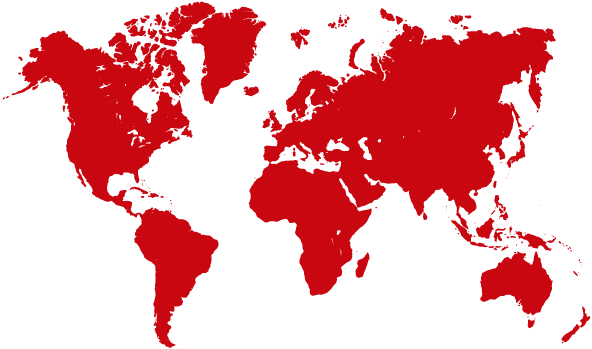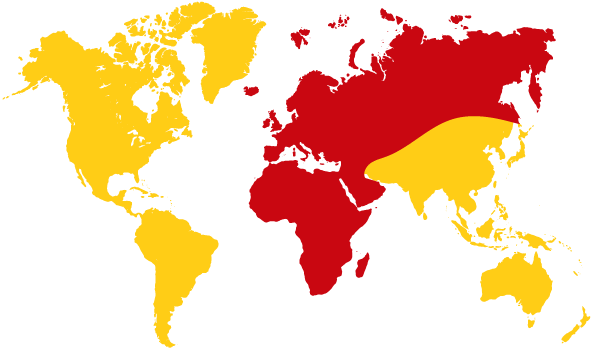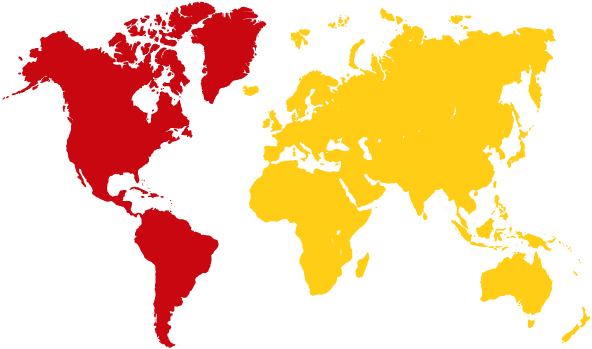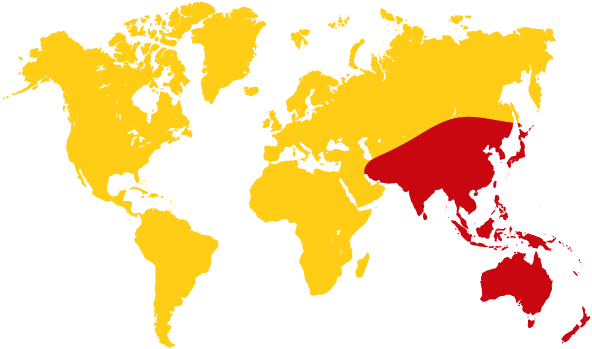The International Amateur Radio Union (IARU) is the worldwide federation of national amateur radio organizations. The membership of the IARU consists of more than 160 member-societies in as many countries and separate territories.
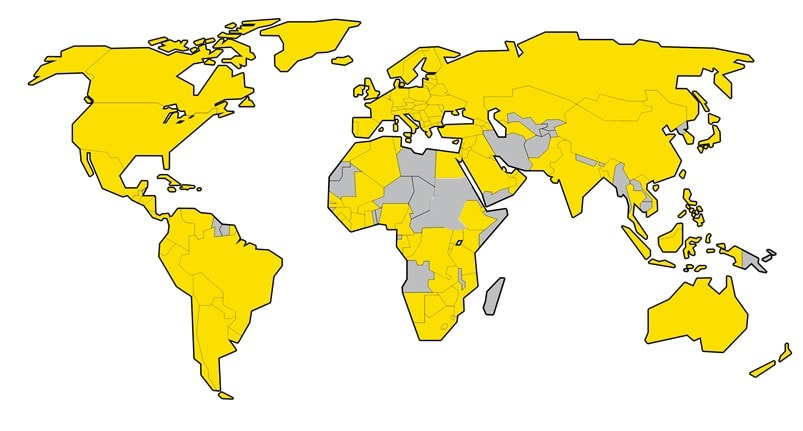
The IARU was founded at a meeting in Paris in 1925 as the international representative of the Amateur Radio movement. At the time the “short waves” were just beginning to be understood and to be exploited for global communication using power levels and antennas that were within reach of private individuals operating from their own homes. These radio amateurs needed an organization to coordinate their activities and to be their voice at international conferences.
How is IARU organised?
The IARU Constitution has been revised several times. The current Constitution was adopted in 1984 and amended slightly in 1989. It recognizes three regional organizations representing the three radio regions that are defined by the ITU for frequency allocation purposes. Each regional organization is autonomous and operates in accordance with its own Constitution.
The policy and management of the IARU are carried out by its Administrative Council, made up of the three IARU officers (President, Vice President and Secretary) and two representatives from each of the three regional organizations. The Administrative Council normally meets annually, usually in conjunction with a regional conference.
The International Secretariat of the IARU is the ARRL, the national association for amateur radio in the United States.
The three IARU Regions are organised to broadly mirror the structure of the International Telecommunications Union (ITU) and its related regional telecommunications organisations. The Regions comprise:
- IARU Region 1:
Europe, Africa, the Middle East and Northern Asia - IARU Region 2:
The Americas - IARU Region 3:
Asia-Pacific
What does IARU do for radio amateurs?
The IARU represents the interests of the Amateur Radio Service worldwide to relevant international organisations, promoting the interests of amateur radio and seeking to protect and enhance its spectrum privileges.
Over the years, the IARU has worked hard to give all radio amateurs new bands at 136 kHz, 472 kHz, 5 MHz, 10 MHz, 18 MHz, 24 MHz, and 50 MHz and a regional European allocation at 70 MHz. In addition to that, the IARU has obtained:
- Extension of the 7 MHz
amateur band in Regions 1 and 3. - Extensive improvements in
international roaming for radio amateurs. - Significant progress towards
international certificate harmonisation at “full” level and now at entry level. - Extensive representation in the
Working Parties of ITU and at World Radiocommunication Conferences. - Sensible emission standards
from PLT systems, involving much work in the international
standards forums. - Support for the development of
amateur radio in developing countries.
How does the IARU interact with the ITU and other international bodies?
IARU seeks to work collaboratively with organisations which influence spectrum allocations and with others where the objectives of amateur radio align.
The IARU is recognised by the United Nations as a Non-Governmental Organisation (NGO) by virtue of its consultative status with other United Nations bodies, i.e. International Telecommunication Union (ITU). The ITU recognises the IARU as an international organisation (CV/Art.19, No. 231).
IARU has worked with the ITU for nearly a century and is a Sector Member of the Radiocommunication Sector (ITU‑R), playing a full part in the work of ITU‑R as it affects amateur radio spectrum, and also of the Development Sector (ITU‑D), relating to developing countries and emergency communication.
In 1947 the IARU was one of the first international organizations to enter into a formal agreement with the United Nations Organization for support and cooperation. Today the IARU is in consultative status with ECOSOC.
Since then, IARU has developed close working relationships with the Regional Telecommunications Organisations (in most cases through a formal MoU):
- African Telecommunications Union (ATU)
- Arab Spectrum Management Group (ASMG)
- Asia-Pacific Telecommunity (APT)
- Caribbean Telecommunications Union (CTU)
- Conference of European Postal and Telecommunications Administrations (CEPT)
- Inter-American Telecommunication Commission (CITEL)
- Regional Commonwealth in the field of Communications (RCC)
In EMC, IARU is a Liaison partner of CISPR, the International Special Committee on Radio Interference, which defines global EMC standards affecting radio communications, and also a full member of ETSI, the European Telecommunications Standardisation Institute. IARU contributes to, and is actively involved in, meetings of both organisations.
Other international organisations with which IARU is associated include the IFRC (International Federation of Red Cross and Red Crescent Societies) with whom we have a formal MoU.
How is the IARU organisation structured and how are its officers appointed?
Worldwide the Administrative Council (AC) leads the IARU. Representatives of each Region propose candidates for President and Vice-President of the IARU, whose term of office is five years.
Who are the IARU Officers?

Tim Ellam, VE6SH/G4HUA
The IARU President is Tim Ellam, VE6SH. Tim is serving his third five-year term, first elected to the post in 2009 after serving one term as Vice President beginning in 2004.
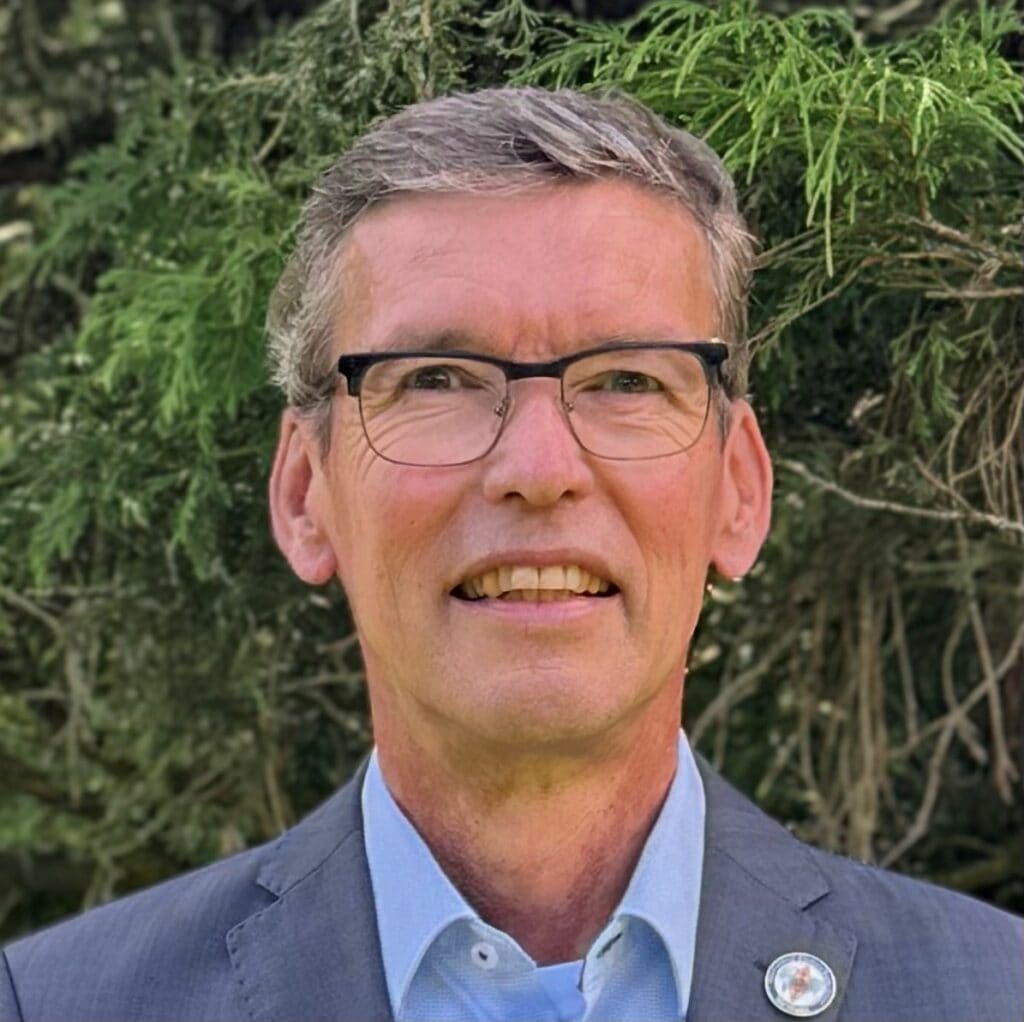
Thomas Wrede, DF200
Thomas Wrede, DF2OO, is Vice President. Thomas was elected in 2024 and is serving his first five-year term.

Joel Harrison, W5ZN
The IARU Secretary is appointed by the
International Secretariat, ARRL.
Joel Harrison, W5ZN, was appointed Secretary
effective 1 July 2021.
